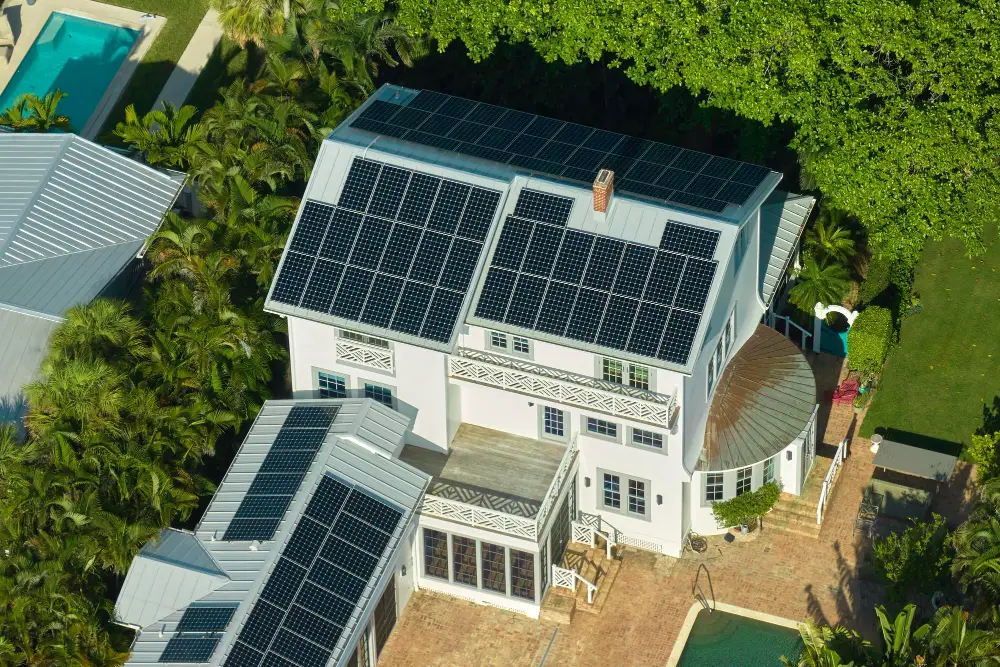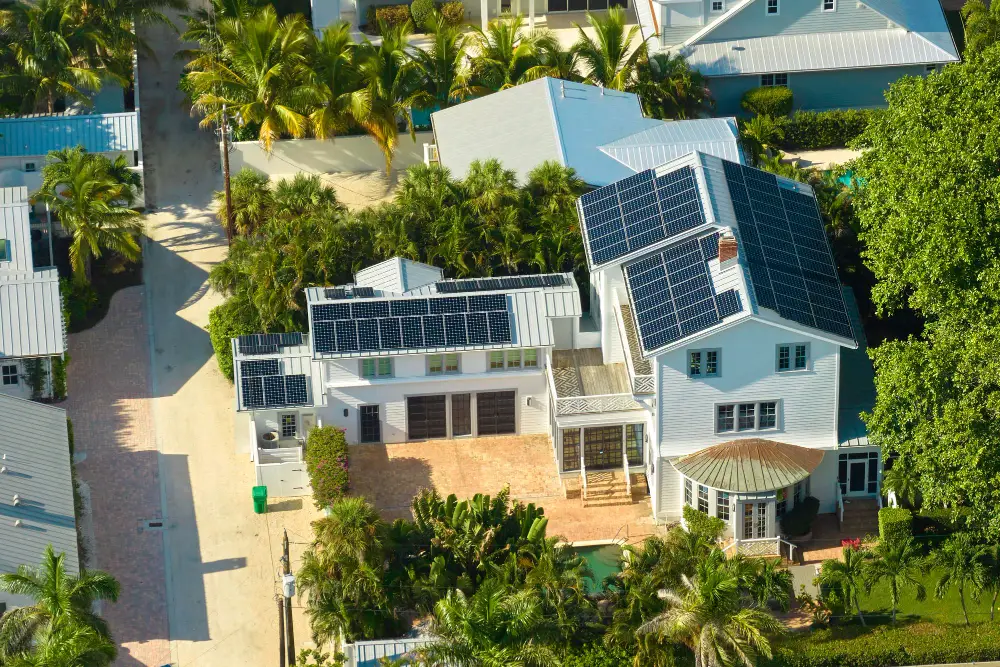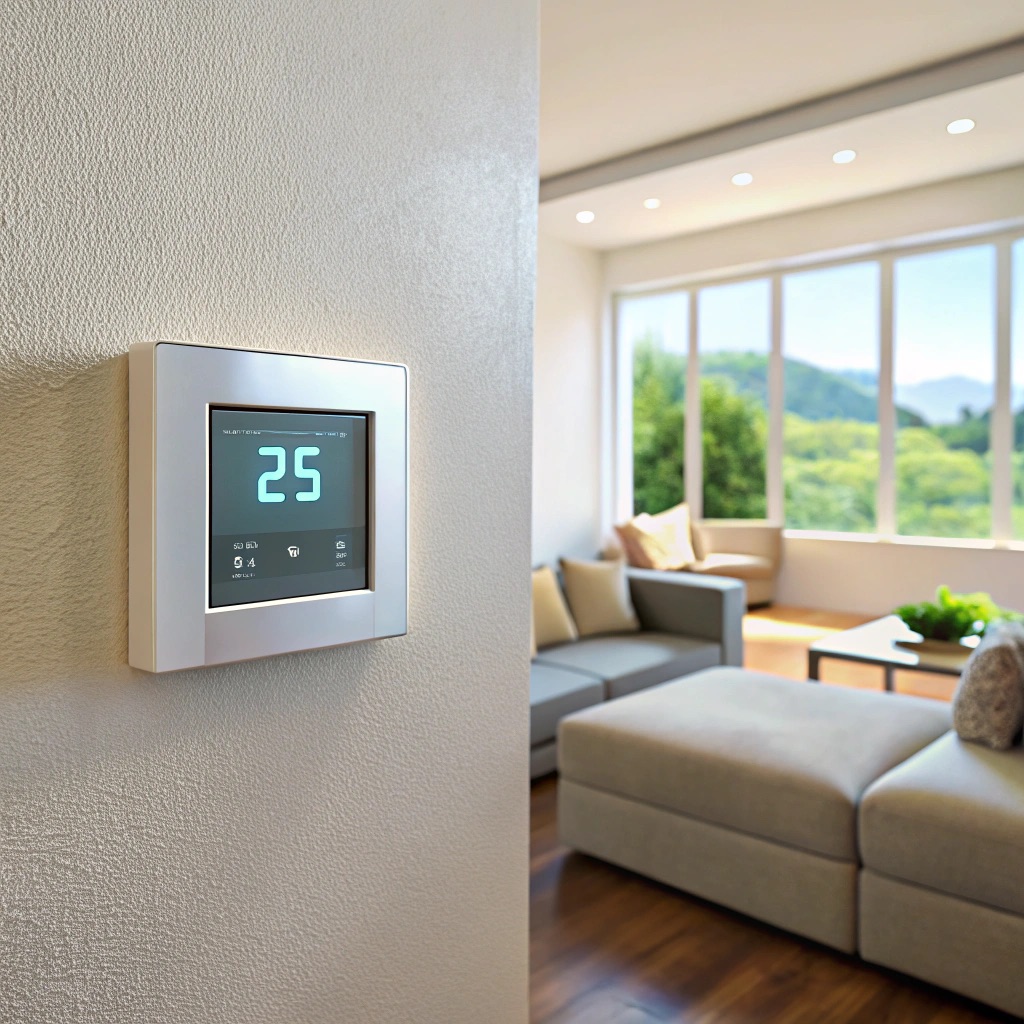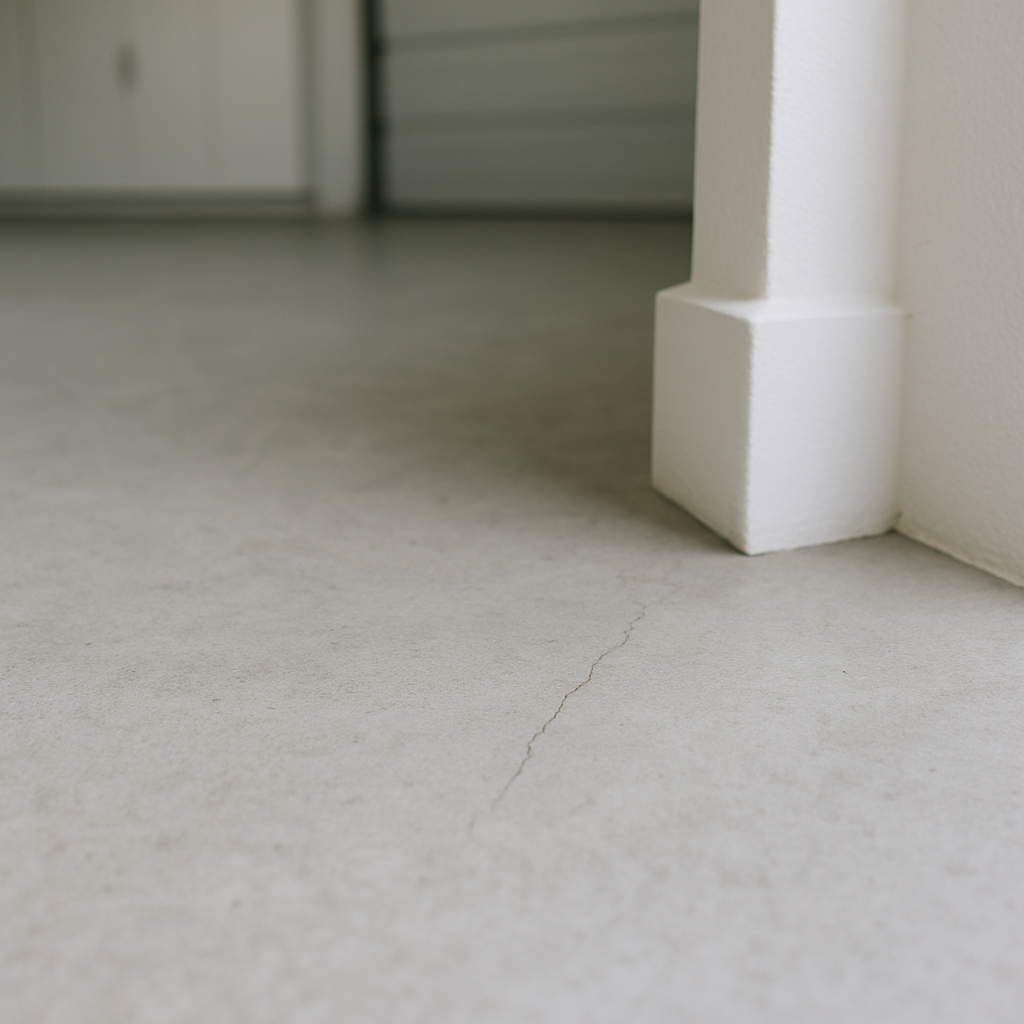Last updated on
Renewable energy sources, particularly solar power, have gained significant traction in recent years due to their environmental and economic benefits. As homeowners and property investors become increasingly aware of the advantages of solar energy, it has become a crucial factor in determining property values.
Smart Solar Energy, a concept that integrates solar panels into buildings’ designs, has emerged as a game-changer in the real estate market.
What's Inside
The Emergence of Smart Solar Energy

Smart Solar Energy is an innovative approach that seamlessly integrates solar panels into the architectural design of buildings. This concept not only enhances the aesthetic appeal of properties but also maximizes energy efficiency.
By incorporating solar panels into roofs, facades, and other structural elements, Smart Solar Energy transforms buildings into energy-generating assets. This seamless integration sets Smart Solar Energy apart from traditional solar panel installations, where the panels are often mounted on rooftops or in open spaces, creating a visually distinct appearance.
The Impact on Property Values
The installation of solar panels has been shown to have a positive impact on property values, and this effect is amplified by the integration of Smart Solar Energy. Several studies have demonstrated that homes with solar panels sell at a premium compared to similar properties without solar installations.
According to a study conducted by the Lawrence Berkeley National Laboratory, homes with solar panels sold for an average of 4.1% more than comparable homes without solar systems.
Higher Demand for Solar-powered Homes

As society becomes increasingly conscious of environmental sustainability, the demand for solar-powered homes has skyrocketed. Homebuyers are willing to pay a premium for properties that offer the benefits of renewable energy and reduced utility costs.
This demand has driven up property values, making solar-powered homes a sought-after commodity in the real estate market. According to the National Association of Realtors, over 80% of homebuyers consider energy efficiency a critical factor when choosing a new home, making solar-powered properties highly desirable.
Energy Cost Savings
One of the primary factors contributing to the increased value of solar-powered properties is the potential for significant energy cost savings. By generating their own electricity through solar panels, homeowners can substantially reduce their reliance on traditional utility companies and enjoy lower monthly energy bills.
These savings not only benefit the current homeowners but also add to the property’s long-term value. In some cases, the energy cost savings can offset a significant portion of the initial investment in solar panels, making the investment even more attractive.
Environmental Consciousness and Sustainability
The growing awareness of environmental issues and the importance of sustainability has influenced consumer preferences. Homebuyers are increasingly attracted to properties that incorporate eco-friendly features, such as solar energy systems.
Properties with solar installations are perceived as environmentally responsible investments, appealing to buyers who prioritize sustainability and wish to reduce their carbon footprint. This perception of environmental responsibility can enhance a property’s marketability and contribute to its overall value.
Government Incentives and Rebates
Many governments and local authorities offer incentives and rebates to encourage the adoption of solar energy. These incentives can significantly offset the upfront costs associated with installing solar panels, making the investment more financially attractive for homeowners.
Properties with existing solar installations can benefit from these incentives, further enhancing their value in the real estate market. Examples of such incentives include tax credits, grants, and net metering programs, which allow homeowners to sell excess electricity generated by their solar panels back to the grid.
Increased Home Equity
The installation of solar panels not only reduces energy costs but also adds value to a property’s equity. As the demand for solar-powered homes continues to rise, the equity associated with these properties is likely to increase over time.
This equity can be leveraged for various purposes, such as refinancing, home improvement projects, or even as a source of collateral for other investments. Homeowners with solar installations may find it easier to secure favorable loan terms or access additional financing options due to the increased value of their property.
Neighborhood Appeal and Community Impact
The presence of solar-powered homes within a neighborhood can have a ripple effect, positively influencing the values of surrounding properties. Solar energy systems contribute to a neighborhood’s overall appeal, creating a sense of environmental responsibility and forward-thinking within the community.
This can attract prospective buyers who value living in eco-conscious neighborhoods, further driving up property values in the area. Additionally, the widespread adoption of solar energy within a community can help reduce the overall carbon footprint and contribute to a more sustainable living environment, enhancing the desirability of the neighborhood.
Maintenance Considerations
While solar energy systems offer numerous benefits, it is essential to consider the maintenance requirements associated with these installations. Proper maintenance and regular inspections are crucial to ensure the longevity and efficiency of solar panels.
Homeowners should factor in the potential costs of maintenance and repairs when evaluating the overall impact of solar energy on property values. However, with advancements in solar panel technology and the increasing availability of professional maintenance services, the maintenance costs are becoming more manageable and predictable.
Resale Potential and Long-term Value
When considering the installation of solar panels, it is essential to consider the long-term value proposition. While the upfront costs may be substantial, the potential for increased property value, energy cost savings, and environmental benefits can significantly outweigh the initial investment.
As the demand for renewable energy continues to grow, solar-powered homes are likely to maintain their value and appeal in the real estate market, making them a wise investment for both homeowners and property investors. Additionally, the potential for future technological advancements in solar energy and energy storage solutions may further enhance the long-term value of solar-powered properties.
The Takeaway
The influence of solar energy on property values is undeniable. Smart solar energy, with its seamless integration of solar panels into building designs, has further enhanced the appeal of solar-powered properties. By offering energy cost savings, environmental benefits, increased home equity, and government incentives, solar installations have become a significant factor in determining property values.
As society continues to prioritize sustainability and renewable energy sources, the demand for solar-powered homes is expected to rise, driving up property values and making them attractive investments for both homeowners and property investors. The potential for long-term value appreciation, combined with the environmental and financial benefits, solidifies the green advantage of solar energy in the real estate market.




